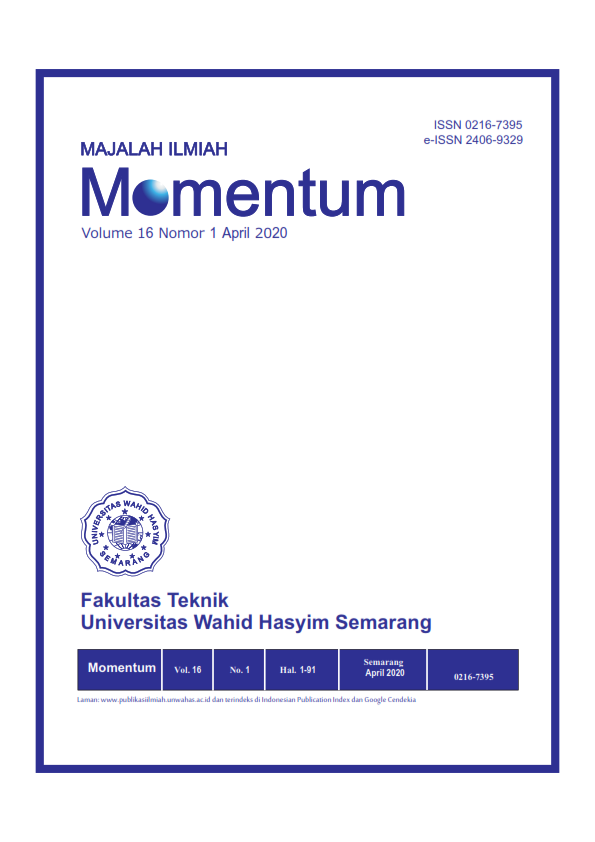PENGARUH SUHU INJECTION MOULDING TERHADAP MINIMALISASI SINK MARKS PADA MATERIAL LIMBAH PLASTIK ACRYLONITRILE BUTADIENE STYRENE (ABS)
DOI:
https://doi.org/10.36499/jim.v16i1.3353Abstract
Plastik merupakan bahan yang terbentuk dari produk polimerisasi sintetik. acrylonitrile butadiene styrene (ABS) merupakan salah satu jenis plastik. ABS dapat dicetak dengan berbagai proses yaitu cetak injeksi, cetak kompresi, ekstrusi, roto moulding, dan thermoforming. Proses injection moulding merupakan teknik yang sering digunakan dalam pembentukan produk berbahan plastik. Tujuan dari penelitian ini adalah mengetahui dan menganalisis pengaruh temperatur injeksi terhadap cacat sink marks dengan pengujian densitas, uji tarik dan uji struktur makro. Proses injection moulding dilakukan dengan variasi pemanasan menggunakan heater pada temperatur 180°C, 200°C, 220°C, 240°C dan 260°C kemudian diinjeksikan ke dalam cetakan standar ASTM D638 dengan tekanan konstan injeksi 0,68 N/mm2. Sink marks adalah cacat produk berupa penyusutan. Faktor yang mempengaruhi sink marks adalah tekanan, suhu, waktu, dan pendinginan. Hasil pembahasan penelitian ini ada pengaruh suhu injection moulding untuk memperoleh minimum sink marks pada uji densitas, uji tarik dan foto makro. Kata kunci : acrylonitrile butadiene styrene (ABS), Injection moulding, sink marsDownloads
Published
Issue
Section
License
Authors who publish with this journal agree to the following terms:
The journal allow the authors to hold the copyright without restrictions and allow the authors to retain publishing rights without restrictions.
Authors retain copyright and grant the journal right of first publication with the work simultaneously licensed under a Creative Commons Attribution License that allows others to share the work with an acknowledgement of the work's authorship and initial publication in this journal.
Authors are able to enter into separate, additional contractual arrangements for the non-exclusive distribution of the journal's published version of the work (e.g., post it to an institutional repository or publish it in a book), with an acknowledgement of its initial publication in this journal.
Authors are permitted and encouraged to post their work online (e.g., in institutional repositories or on their website) prior to and during the submission process, as it can lead to productive exchanges, as well as earlier and greater citation of published work (See The Effect of Open Access).

This work is licensed under a Creative Commons Attribution 4.0 International License.

